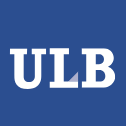Detailed introduction of the Free University of Brussels:
Introduction
The Free University of Brussels was founded in 1834 as a private university to oppose the control of Catholic education. It was legalized in 1970 due to the legal right to establish higher education institutions. It has now become one of the main research partners of the European Community Commission.
Overview
Student size: The French Free University of Brussels (ULB) has nearly 20,000 students; the Dutch Free University of Brussels (VUB) has nearly 14,000 students.
Faculty: ULB has 600 professors, 800 scientific researchers, and 900 administrative and logistics staff; VUB has more than 150 internationally renowned scientific research teams.
History
After Belgium's independence in 1830, Brussels, as the capital, did not have a university-level higher education institution. In 1831, a group of Brussels celebrities proposed to establish a national university, but it was not supported by the government. In 1834, with the support of the Belgian bishop, lawyer Hilde Verhagen officially founded the Free University of Belgium, the predecessor of today's Free University of Brussels. In 1842, the school was renamed the Free University of Brussels.
In the 1860s, with the rise of new economic industries in the Flemish region, in 1969, the Free University of Brussels was split into the French Free University of Brussels (ULB) and the Dutch Free University of Brussels (VUB) due to language issues, and used French and Dutch as the main teaching languages respectively.
Foundation time
The Free University of Brussels was established in 1834.
School strength
Academic research: ULB has won 4 Nobel Prizes and several other famous scientific awards, has a first-class research level, and is a university that attaches great importance to the training of doctoral students. There are 1,800 doctoral students, of which 43% are from abroad. VUB's scientific research planning is closely aligned with the development of industrial technology in the world today, focusing on the research and innovation of new cutting-edge technologies, and has many world-renowned researchers.
International cooperation: ULB has signed a training agreement with doctoral students, which meets the EU's standards for recruiting researchers. VUB is an open university. 25% of the students are international students from different countries who study master's and doctoral programs taught in English. Its International Cooperation and Exchange Office also has Chinese managers. It has co-organized the China-Europe Think Tank Forum with the China Scholarship Council.
Institutional Nature
The Free University of Brussels is a public university.
Educational Philosophy
It emphasizes giving students a free space so that they can set aside all political and religious authority constraints, specialize in studying worldly problems, strive to delve into the original truth and goodness, and cultivate students' independent thinking ability and spirit of exploration.
Key laboratories and disciplines
Key laboratories: Both ULB and VUB have many advanced laboratories, such as the Molecular Biology Research Center, which provide an important platform for scientific research.
Key disciplines: ULB's physics, chemistry, political science, European studies, criminology, public health, architecture and other disciplines enjoy a high reputation in Europe; VUB Famous throughout Europe for medicine, engineering, biology, photonics and management.
Faculty
Faculty of the French-speaking Free University of Brussels (ULB): including the School of Bioengineering, the School of Psychological Sciences, the School of Social and Political Sciences, the School of European Studies, the School of Law and the School of Criminology, the School of Public Health, the Higher School of Physical Education, the Institute of Labor Sciences, the Institute of Statistics and Operational Research, the Institute of Astronomy and Astrophysics, the Solvay Brussels School of Economics and Management, etc.
Faculty of the Dutch-speaking Free University of Brussels (VUB): including the School of Law and the School of Criminology, the School of Economics and Social Sciences and the Solvay Business School, the School of Psychology and Educational Sciences, the School of Science and Bioengineering Sciences, the School of Medicine and Pharmacy, the School of Arts and Philosophy, the School of Engineering, the School of Physical Education and Physical Therapy, etc.
Ranking
In the 2024 QS World University Rankings, the Free University of Brussels ranks 189th.
Cost
Tuition fees vary depending on factors such as major, degree level and language of instruction. The specific fees can be found on the school's official website.
Campus
French-speaking Université Libre de Bruxelles (ULB) campuses: Solbosch Campus, Erasme Campus, etc., with beautiful campus environment and complete teaching facilities. ULB's medical school is renowned worldwide, and its affiliated hospital Erasme Hospital provides students with abundant clinical practice opportunities.
Dutch-speaking Université Libre de Bruxelles (VUB) campuses: mainly Etterbeek Campus, Jette Campus and Rode Campus. Etterbeek Campus is where most departments are located, Jette Campus has medical and pharmacy departments and graduate courses in human ecology, and Rode Campus is the location of the Molecular Biology Research Center.
-
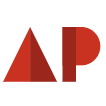
Artesis Plantijn Hogeschool Antwerpen
-
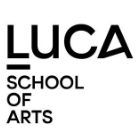
LUCA School of Arts
-
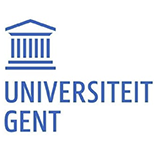
Ghent University
-

Vrije Universiteit Brussel
-
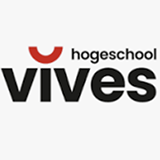
Katholieke Hogeschool VIVES
-
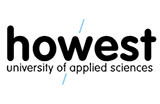
Hogeschool West-Vlaanderen
-

Antwerp Management School
-

University of Antwerp
-
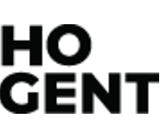
Hogeschool Gent
-

Karel de Grote-Hogeschool
-

Mesoamerican University
-

Istmo University
-

Mariano Galvez University of Guatemala
-

Regional University of Guatemala
-

Galileo University
-

Francisco Marroquín University
-

Rafael Landívar University
-

University of the Valley of Guatemala
-

University of San Carlos of Guatemala
-

Technological Institute of Tlaxcala Plateau
-

Golfo University
-

Technological University of South Sonora
-

Technological University of Huejotzingo
-

Tizimín Institute of Technology
-

Chilpancingo Institute of Technology

